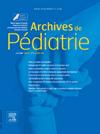Intersectoral professionals’ understanding of the prevention of sexual violence against children, their role and that of the GP: A study using semi-structured interviews
IF 1.3
4区 医学
Q3 PEDIATRICS
引用次数: 0
Abstract
Background
In 2020, the WHO reported a European prevalence of 9.6 % of sexual abuse among children, and called on every country to improve prevention of such violence.
Objective
To explore the understanding of an intersectional sample of professionals of their role and that of the general practitioner (GP) in the primary and secondary prevention of sexual violence against children (SVAC).
Methods and Settings
This qualitative, exploratory study was conducted in France. It followed COREQ criteria and ethical approval was obtained. Semi-structured interviews were conducted between February and October 2022 with intersectoral professionals involved in the identification and management of SVAC. The analysis was inspired by grounded theory.
Results
Thirteen professionals (from the media, healthcare, justice, police, education and social welfare sectors) shared their views regarding SVAC prevention. The notion that SVAC is a societal taboo recurred throughout the study. The content of participants’ discussions about prevention could be divided into four categories: (1) Intersectoral professionals’ understanding of prevention, prevention means talking about it; (2) Two, contrasting understandings of prevention and roles; (3) Putting primary and secondary SVAC prevention into practice; (4) The GP's role in SVAC prevention. The GP's role in SVAC prevention was perceived to, above all, involve screening and reporting. Primary prevention measures by GPs appeared to be less obvious.
Discussion
Our study reinforces the need and usefulness of intersectoral collaboration to improve SVAC prevention. It is in the interests of every professional to be appropriately trained, and to understand the roles of the various stakeholders, in order to work together.
Conclusion
While the WHO has called upon the healthcare sector to coordinate intersectoral collaboration for the prevention of SVAC, professionals, (including GPs) must be supported in order to systematically integrate prevention into the monitoring of children.
跨部门专业人员对预防针对儿童的性暴力的理解、他们的作用和全科医生的作用:采用半结构化访谈的研究:预防针对儿童的性暴力。
背景:2020年,世界卫生组织报告称,欧洲儿童性虐待发生率为9.6%,并呼吁各国加强对此类暴力的预防。目的:探讨专业人员和全科医生(GP)在儿童性暴力一级和二级预防(SVAC)中的作用的交叉样本。方法和背景:这项定性的探索性研究在法国进行。它遵循COREQ标准并获得了伦理批准。在2022年2月至10月期间,与参与SVAC识别和管理的跨部门专业人员进行了半结构化访谈。这一分析受到了扎实理论的启发。结果:来自媒体、卫生、司法、警察、教育和社会福利部门的13位专业人士分享了他们对SVAC预防的看法。在整个研究过程中,SVAC是一种社会禁忌的概念反复出现。与会者关于预防的讨论内容可分为四类:(1)跨部门专业人员对预防的理解,预防意味着谈论预防;(2)二是对预防和作用认识的对比;(3)实施SVAC一级和二级预防;(4) GP在SVAC预防中的作用。全科医生在SVAC预防中的作用被认为首先包括筛查和报告。全科医生的初级预防措施似乎不那么明显。讨论:我们的研究加强了部门间合作以改善SVAC预防的必要性和有效性。每个专业人员都应该接受适当的培训,并了解各种利益相关者的角色,以便共同工作。结论:虽然世卫组织呼吁卫生保健部门协调跨部门合作,以预防SVAC,但必须支持专业人员(包括全科医生),以便系统地将预防纳入对儿童的监测。
本文章由计算机程序翻译,如有差异,请以英文原文为准。
求助全文
约1分钟内获得全文
求助全文
来源期刊

Archives De Pediatrie
医学-小儿科
CiteScore
2.80
自引率
5.60%
发文量
106
审稿时长
24.1 weeks
期刊介绍:
Archives de Pédiatrie publishes in English original Research papers, Review articles, Short communications, Practice guidelines, Editorials and Letters in all fields relevant to pediatrics.
Eight issues of Archives de Pédiatrie are released annually, as well as supplementary and special editions to complete these regular issues.
All manuscripts submitted to the journal are subjected to peer review by international experts, and must:
Be written in excellent English, clear and easy to understand, precise and concise;
Bring new, interesting, valid information - and improve clinical care or guide future research;
Be solely the work of the author(s) stated;
Not have been previously published elsewhere and not be under consideration by another journal;
Be in accordance with the journal''s Guide for Authors'' instructions: manuscripts that fail to comply with these rules may be returned to the authors without being reviewed.
Under no circumstances does the journal guarantee publication before the editorial board makes its final decision.
Archives de Pédiatrie is the official publication of the French Society of Pediatrics.
 求助内容:
求助内容: 应助结果提醒方式:
应助结果提醒方式:


